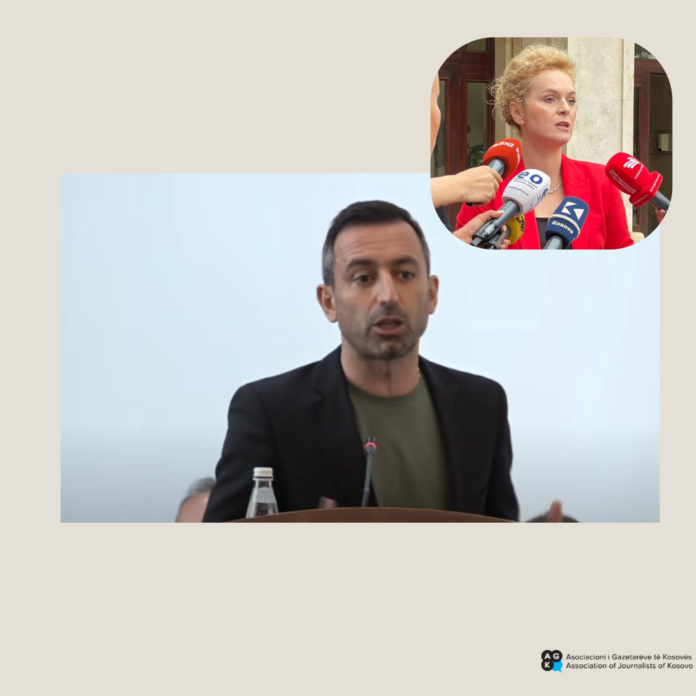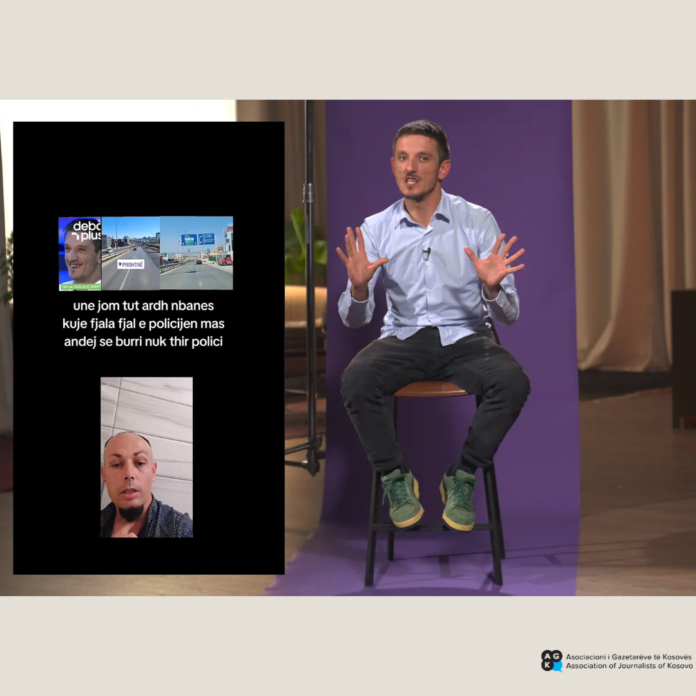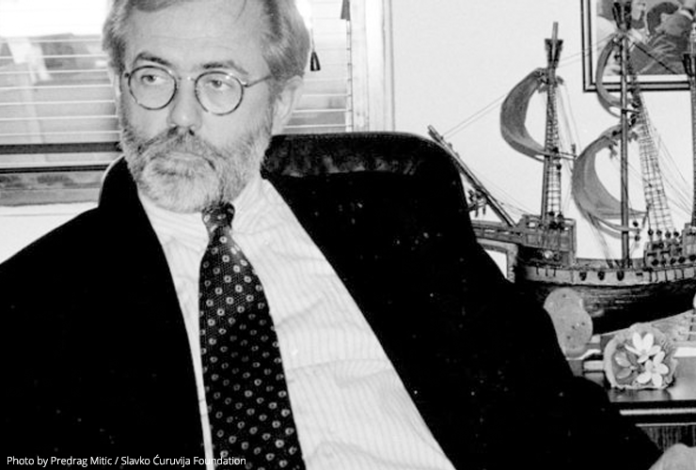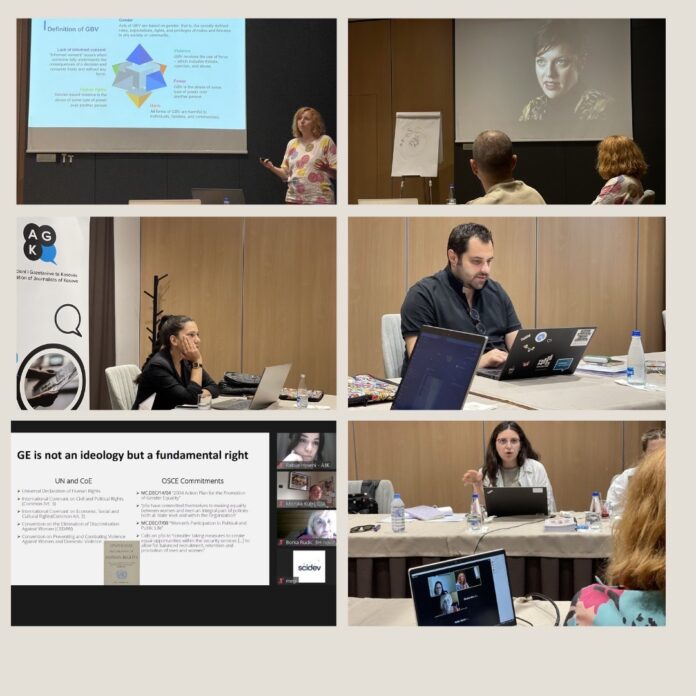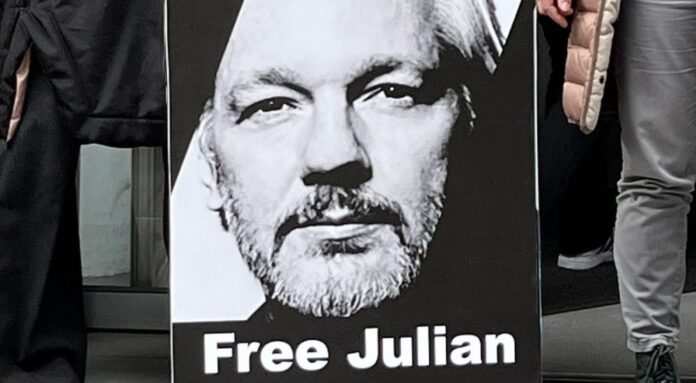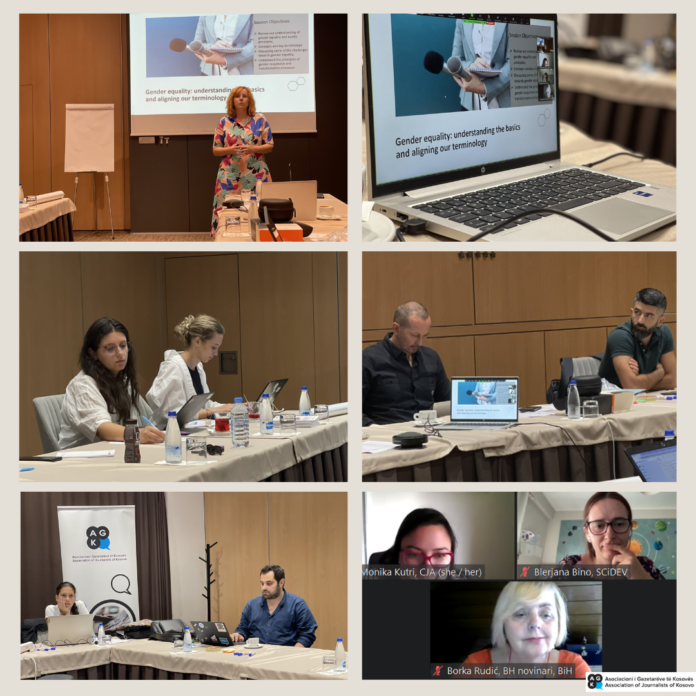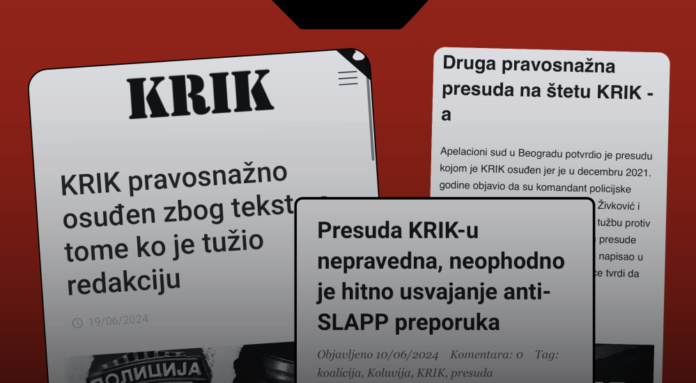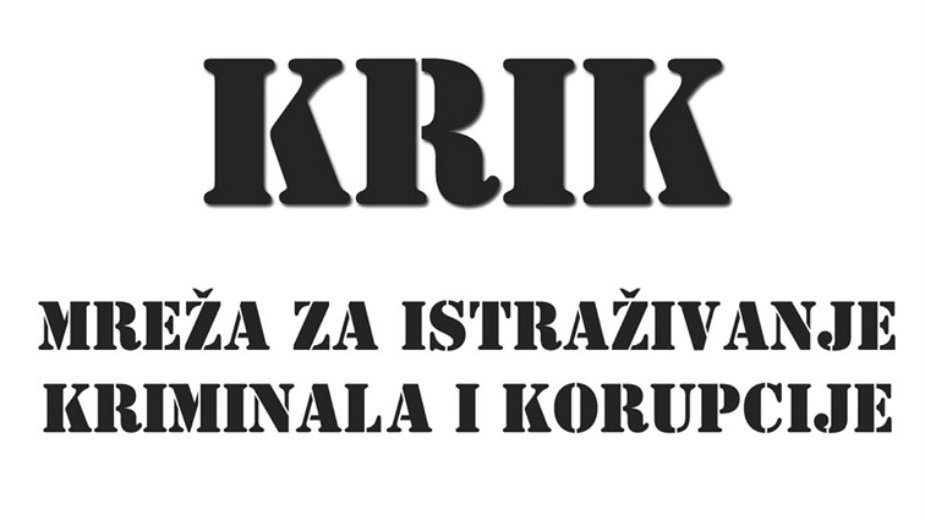The Court of Appeals in Belgrade confirmed the first-instance ruling which found that KRIK was liable for violating the presumption of innocence of Predrag Koluvija, who is on trial for allegedly organizing a criminal group that produced more than a ton and a half of marijuana. Koluvija sued KRIK because he was referred to as an “accused narco boss” in a news piece about the trial titled “Start of Jovanjica 2 Trial Scheduled.” According to the ruling, KRIK is required to pay him approximately 800 EUR in damages and court costs, while the entire process has cost the newsroom around 2,000 euros. This is the first definitive verdict against KRIK and the organization will use all remaining legal means – it will request a review by the Supreme Court and file a constitutional complaint with the Constitutional Court.
The Court of Appeals in Belgrade did not accept the explanation from KRIK’s appeal that the article in question was a report from an ongoing trial and that it clearly stated Koluvija was accused, not convicted – thus, an average reader could not be misled into believing Koluvija had been convicted.
The court did not find it relevant that in the article KRIK has used terms like „accused“ and „charges“ and „according to the prosecutor’s claims“, that Koluvija’s defense was also published in the same article, and that the topic was of great public importance.
During the trial, KRIK’s editor Stevan Dojčinović explained that journalists cannot use long and incomprehensible legal formulations in their articles, but rather use colloquial expressions that everyone understands.
“In the case of using only legal terms, every time we mention Koluvija, we would have to write that he is – accused as the organizer of an organized criminal group aimed at committing the criminal offenses of unauthorized production and trafficking of narcotic drugs,” Dojčinović explained.
He also pointed out that KRIK followed the example of leading world media like “The Guardian,” “The Washington Post,” and “Reuters”, which report in the same way and use the English term “accused narco boss” – the term which KRIK also used directly translated into Serbian.
Journalist associations and media organizations previously stated that KRIK did not violate the presumption of innocence and described Koluvija’s lawsuit as pressure on the newsroom and an attempt to silence them. They noted that the purpose of the lawsuits is to stop KRIK from reporting on “Jovanjica,” one of the most important cases in the country.
The judicial panel, chaired by Judge Zorica Đaković, concluded that by writing that Koluvija was an “accused narco boss” and referring to the “marijuana plantation” in the news report, KRIK “identified Koluvija as the perpetrator of a punishable criminal offense, despite the absence of a court decision.”
“The factual claims made about the plaintiff are false and naturally capable of causing emotional distress, and the plaintiff felt great shame after the article was published”, the Court of Appeals’ judgment states.
With this decision, the Court of Appeals confirmed the previous ruling issued by Judge Bojana Čogurić of the Higher Court in Belgrade.
According to the final ruling, KRIK is obliged to pay Koluvija approximately 300 EUR for the emotional distress caused and 500 EUR for court costs. However, taking into account attorney’s fees and court fees, the entire trial will cost KRIK around 2,000 euros.
This is the first definitive ruling against KRIK. KRIK will continue to fight for the truth by using the remaining legal means in the country – it will request a review by the Supreme Court and file a constitutional complaint with the Constitutional Court, and, if necessary, seek justice before the European Court of Human Rights in Strasbourg.
“We believe that the published article could not have misled readers into thinking that Predrag Koluvija was legally convicted because that news piece, at the very beginning, explicitly states that the trial was just scheduled. Additionally, the article cites information obtained from the spokesperson of the Higher Court and details from the indictment. The terms ‘accused’, ‘charges’ are used in a way that makes it clear that these are the prosecution’s claims. At the same time, the article does not omit the fact that all the accused, including Koluvija himself, denied the charges,” said KRIK’s lawyer Kruna Savović.
This concluded one of the two lawsuits Koluvija filed against KRIK in 2021. Koluvija appeared in court accompanied by his lawyer Vladimir Đukanović, an influential member of the Serbian Progressive Party.
The second lawsuit Koluvija filed against KRIK is still ongoing. In this lawsuit, he seeks 2.8 million dinars for the emotional distress he claims to have suffered due to seven KRIK’s news pieces.
There are currently 16 lawsuits against KRIK and its journalists, with two of the latest being filed by Judge Dušanka Đorđević of the Belgrade Court of Appeals, seeking, among other things, prison sentences and a work ban for KRIK’s journalists.
KRIK considers these to be so-called SLAPP lawsuits, aimed at exerting pressure on the media to prevent them from covering certain topics.
We need your help to keep fighting against SLAPPs! You can make a donation in several ways – electronically, in the bank or via PayPal (for non-residents of the Republic of Serbia). Click for more details.
Source: KRIK


